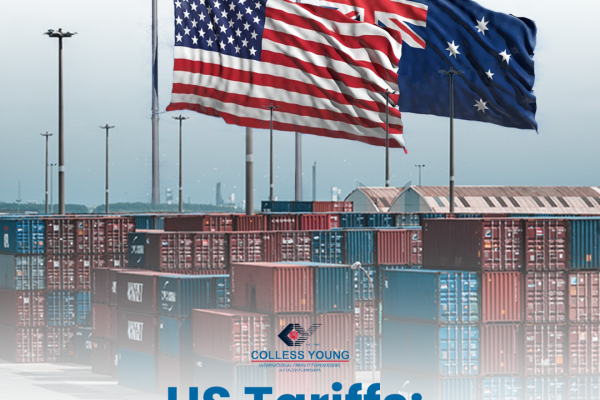Australia has been hit with the Trump administration’s flat 10% global tariff and has dodged the much higher ‘reciprocal tariffs’ the US has slapped on many of its largest trading partners.
The impact on Australian industries will be both direct and indirect. The largest Australian export to the US is meat products, totalling A$4 billion in 2024, and our farmers may divert some product to other nations. The US administration has exempted gold and pharmaceuticals – two of Australia’s largest exports to them – from this round of tariffs.
Product exclusions include goods subject to Section 232 tariffs (steel and aluminium, autos and auto parts) or under separate trade investigations (copper, pharmaceuticals, semiconductors, and timber); and gold bullion, energy and minerals that are not available in the United States.
The larger economic risk is to our regional trading partners and export markets who have all been hit with much higher trade barriers. The tariffs will disproportionately harm economies like Cambodia, Vietnam, and Bangladesh – key development partners to Australia.
The economies with the highest US bilateral trade deficits face the highest reciprocal tariffs: China 34%, the European Union 20%, Vietnam 46%, Taiwan 32%, Japan 24%, South Korea 25%, Thailand 36%, India 26%, Malaysia 24%. Cambodia has been targeted with a 49% tariff and Indonesia has been hit with 32%.
Analysts have warned the tariffs could hit the construction and manufacturing sectors in major North Asian economies. China is our major trading partner. Any slowdown in their economy is likely to affect us here in Australia. The risk of a manufacturing slowdown there could dampen demand for Australia’s massive exports of iron ore, coal and gas.
Another challenge will be the general disruption to global supply chains. It is not just finished products impacted. For instance, the 25% automobile tariff will be extended to auto parts on 03 May. This means even if a car is entirely built in the US, it will still be more expensive because many components are imported.
Looking for the Silver Lining
In one silver lining for Australia, our exporters won’t face significant discrimination in the US market because our non-US competitors are affected by tariffs at least as high as our 10%. Some Australian agricultural exporters say they expect to benefit as a result of the changes. To the extent that some of our competitors are being hit with higher tariffs, our exporters will be at a relative cost advantage – e.g. Australian vs European wine.
The Australian government has ruled out imposing reciprocal tariffs on US imports, noting this would only push up prices for Australian consumers. The preferred response is for a negotiation with the US to secure an exemption.
A dispute at the World Trade Organization (WTO) would send a strong message to our trading partners and also mean there’s an expert adjudication on this unprecedented move. However, the US has sidelined the WTO in recent years.
Another potential action is to initiate consultations under the Australia–US Free Trade Agreement. There is a formal process identified in the agreement with a threat of dispute resolution mechanisms.
We can find other markets. New trade opportunities are already emerging for some Australian agricultural products, which are some of the most desirable in the world. Indeed, the latest data for beef exports showed exports to China jumped 43% from January, to Japan up 27%, and to South Korea up 60% from the previous month. The government has announced a response package, including $50 million to help pursue new markets.
Australia’s response includes one direct trade measure: Should third country exports be directed to Australia in large volumes, anti-dumping duties could provide short-term relief for sectors familiar with the requirements of that system, e.g. steel, aluminium, chemicals and other manufacturing. This means countries looking to sell their products too cheaply in Australia will face countervailing duties. It is a measure that aligns with trade rules.
Australia should collaborate with our trading partners who attach similar value to an open, rules-based trading system. Mr Trump may not embrace the WTO, but a future US administration might see the value in eliminating the tariffs and rejoining the multilateral system.
For more information about customs clearance, tariffs, regulations and dumping enquiries, contact us here at Colless Young. Talk to Andrew, Tel: +61 7 3890
0800 email enq@collessyoung.com.au

